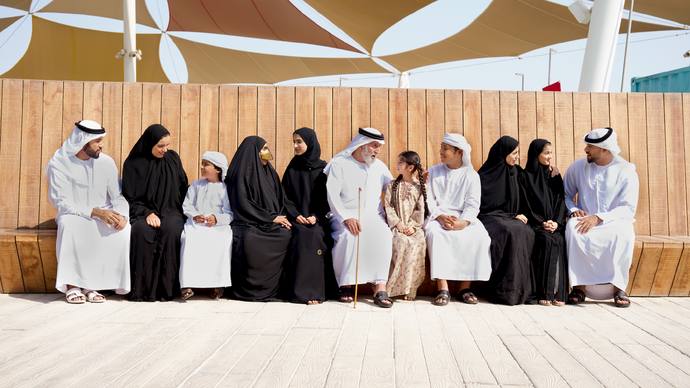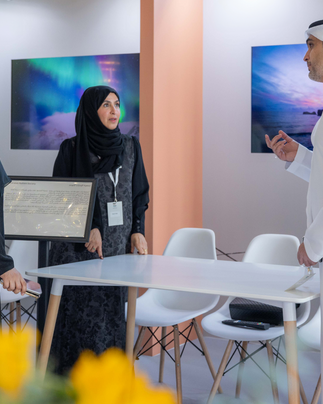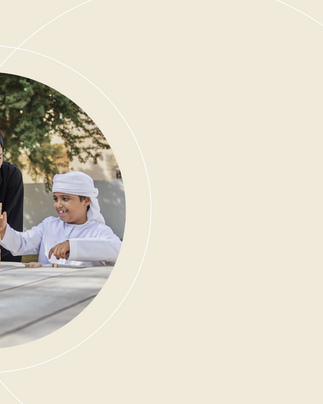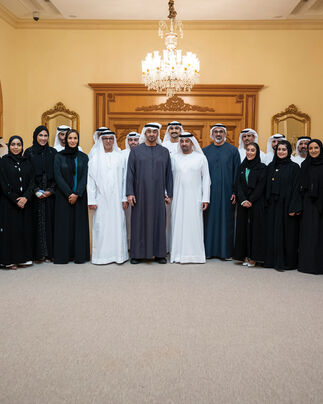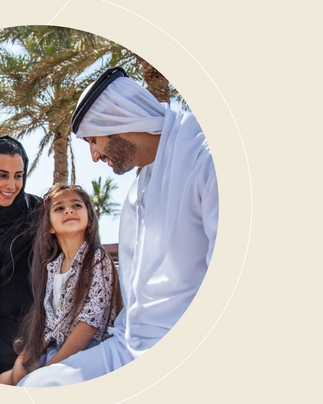The Department of Community Development (DCD) – Abu Dhabi has shared the results of the fourth edition of its Quality of Life survey, which aims to measure quality of life indicators for all members of society across various demographics.
The survey serves as a platform facilitating communication with the community to understand their views in line with internationally recognised methodologies. The DCD uses the survey to identify social challenges and conduct analyses to inform the development and implementation of policies, programmes and initiatives. The goal is to elevate the quality of life and enhance social services of all members of Abu Dhabi society.
The questionnaire saw the participation of 92,576 individuals representing more than 160 nationalities. The results underscored the stability within Abu Dhabi society, with 93.6 per cent of participants expressing a sense of security and safety.
The survey marks the fourth edition, following three previous rounds that engaged around 300,000 citizens and residents, allowing them to actively voice their opinions on key social matters and the overall quality of life in the emirate. The DCD aims to also commence the fifth edition of the survey. The initiative seeks to analyse current and anticipated challenges, with a primary objective of crafting strategies, policies and initiatives. The efforts aim to establish a distinguished social system, dedicated to ensuring a decent quality of life for all members of society.
His Excellency Dr. Mugheer Khamis Al Khaili, Chairman of the Department of Community Development - Abu Dhabi, confirmed that the DCD, since its establishment, has adopted the best internationally approved methodologies for formulating policies, strategies and plans in the short and long-term. Additionally, it has been keen to identify the aspirations of the emirate’s residents and the social challenges they face.
From this standpoint, the DCD launched a quality of life survey based on the Organization for Economic Cooperation and Development (OECD) indicators, which is applied in 38 countries around the world.
His Excellency Dr. Mugheer Khamis Al Khaili said: "Over the course of four rounds, the results of the survey confirmed the excellence Abu Dhabi has shown in many key indicators such as security and digital quality of life. Additionally, it has shown a number of social priorities that require the strengthening of cooperation between entities and partners in a way that serves all segments of society. Over the past few years, we have launched many strategies, initiatives and policies based on the results of the questionnaire."
His Excellency Al Khaili emphasised that the launch of the fifth edition of the survey is an affirmation of the department’s endeavour to establish a safe, stable and prosperous society. The survey also draws up strategies, policies, programmes and initiatives that aim to enhance the lifestyle in Abu Dhabi.
Her Excellency Engineer Shaikha Alhosani, Executive Director of the Social Monitoring and Innovation Sector at DCD, said: "The Quality of Life survey is an important step towards drawing a clear map of the quality of life in Abu Dhabi, and providing a general overview of the issues that concern society, in addition to identifying areas of improvement in various aspects of life. The survey is one of the methodologies aimed at continuously identifying the challenges facing society, as it provides accurate information and statistics on which the DCD relies on to improve work mechanisms and develop social policies and strategies through sustainable and successful solutions."
"The Quality of Life survey is in line with the department’s vision and strategy in defining a clear path to enhance the quality of life in Abu Dhabi, and provide a comprehensive overview of the current challenges facing society, in line with government directives on increasing the rates of happiness and satisfaction of citizens and residents with life in the emirate. It highlights the importance of the results extracted from the survey to help the department and its strategic partners from the relevant authorities in the social and governmental sectors to develop a series of recommendations and initiatives that will enhance the social development process pursued by the emirate."
The Quality of Life survey was designed to measure key performance indicators within the social services sector in Abu Dhabi. The survey aims to highlight priority social issues that necessitate intervention from relevant authorities. It also seeks to capture the community's assessment of the axes of social and economic well-being among various segments of the population and measure the level of awareness among community members regarding specific social issues.
The survey included 14 main indicators that were developed based on the results of previous editions, covering: housing, job opportunities and revenue, family income and wealth, work-life balance, health, education and skills, personal security and safety, social relations, civic participation and governance, environmental quality, social and cultural cohesion, social and community service, quality of life, digital happiness, and wellbeing.
The satisfaction rate of the participants that felt safe, including walking alone at night, was 93.6 per cent. A total of 75.4 per cent of participants in the social relations index indicated that they could rely on relatives and friends when needed. Moreover, the participants who were happy with the amount of quality time they spent with the family was 73 per cent.
Under the housing index, 70.6 per cent of participants expressed being satisfied with their current housing, and the level of satisfaction with quality of life reached 6.94 on a scale of 0-10. The happiness level within the population experienced a slight increase from the 7.63 points recorded in the previous survey, rising to 7.69 points in the current edition.
In terms of satisfaction with family income, 34.3 per cent of participating heads of households expressed satisfaction or complete satisfaction with their family income. Additionally, 64.7 per cent of employed participants conveyed job satisfaction.
The Quality of Life index is based on a global model and concept applied by the Organisation for Economic Cooperation and Development (OECD) to help analyse and improve life quality in all its dimensions. The results are analysed and compared with the results of various countries, which consider the quality of life as a fundamental pillar in the growth and development of a nation. These countries include the US, UK, Finland, Norway, France, and Italy. The comparison aims to identify the activities and best practices in important social fields and to achieve a strong position among the indices of global competitiveness.


